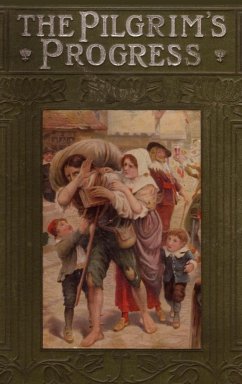In 'The Pilgrim's Progress from this world to that which is to come', John Bunyan crafts a profound allegorical narrative that chronicles the spiritual journey of the main character, Christian, as he navigates obstacles toward salvation. Written in the 17th century, this seminal work employs an engaging prose style interspersed with rich symbolism and vivid imagery, reflecting the Puritanic emphasis on personal faith and the pursuit of a righteous life. The journey through the Celestial City serves as a metaphor for the Christian experience, dissecting themes of temptation, redemption, and the trials of faith, all while engaging readers with a tone that merges accessibility with philosophical depth. John Bunyan, a tinker by trade and a devout Puritan, penned this work during his imprisonment for his nonconformist beliefs. His intense personal struggles with faith and the search for grace were crucial influences, and his own trial parallels Christian's journey. Bunyan's encounterswith religious persecution shaped his narrative, infusing it with authenticity and a genuine plea for spiritual enlightenment, making it deeply reflective of the socio-religious context of his time. For readers seeking a timeless exploration of spirituality, Bunyan's 'The Pilgrim's Progress' stands as an indispensable read. It not only offers profound insights into the Christian faith but also resonates with universal themes of perseverance and moral integrity that continue to inspire readers across generations. Engage with Christian's transformative journey and reflect on your own path with this enduring literary classic.
Bitte wählen Sie Ihr Anliegen aus.
Rechnungen
Retourenschein anfordern
Bestellstatus
Storno








